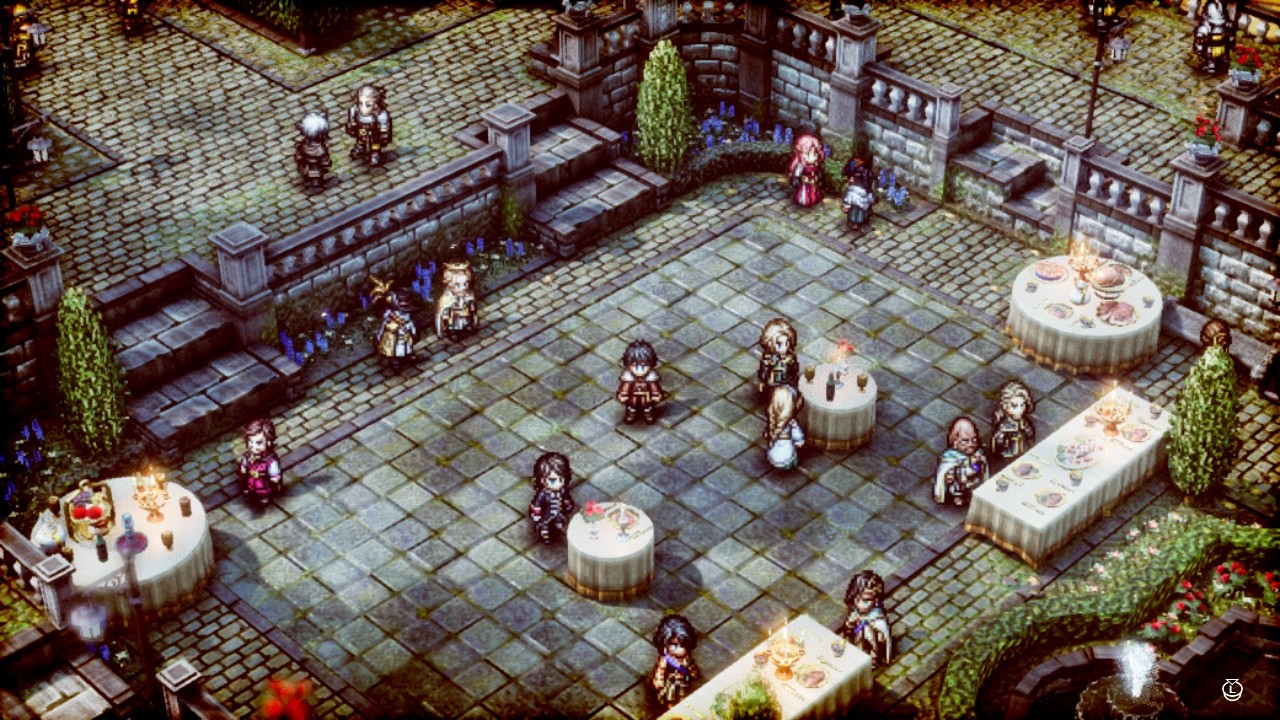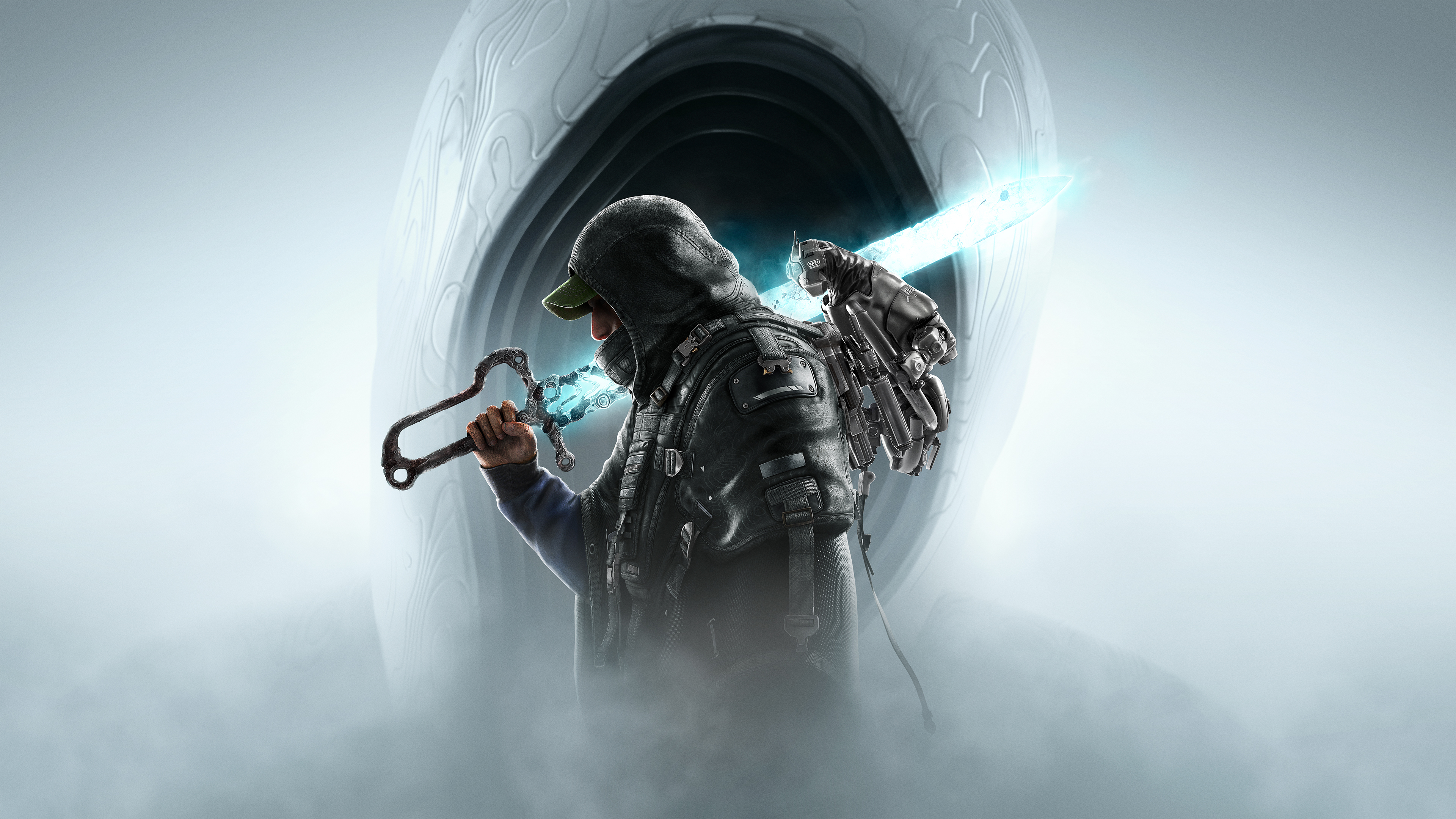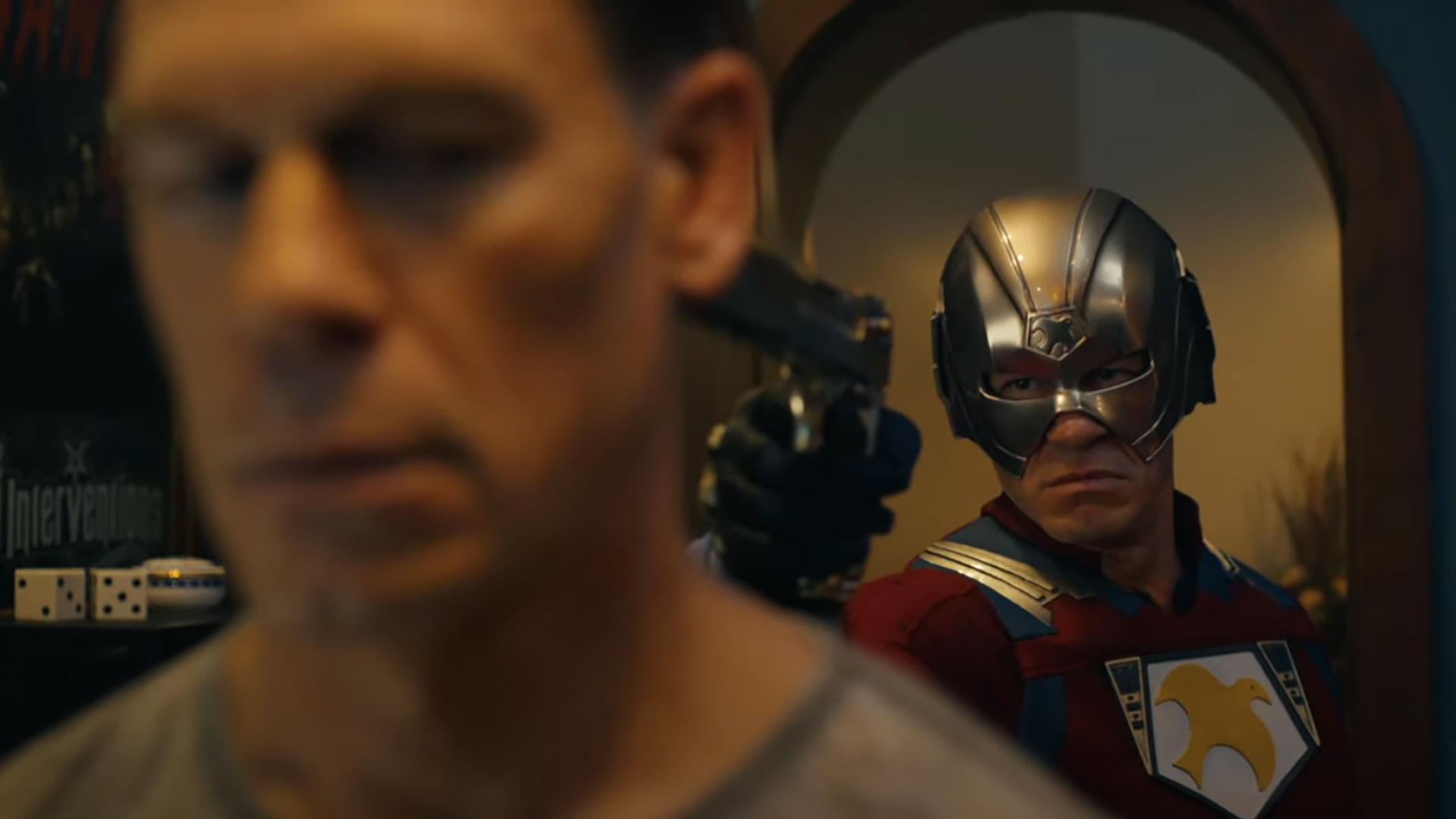GamesRadar+ Verdict
Triangle Strategy is a great strategic battler, meshed with devilish politicking and weighty decisions. It’s just a shame the cast of characters never gets a chance to shine just as bright.
Pros
- +
Absorbing strategy battles
- +
Painstaking decisions
Cons
- -
Lacklustre character development
Why you can trust GamesRadar+
Fantasy tales usually start small and work their way to a bigger critical mass. The Lord of the Rings opens with Hobbits dancing around and drinking, before expanding to encompass the world-threatening doom beyond the borders of the Shire. Triangle Strategy flips this whole well-trodden path on its head, starting big and never really looking back.
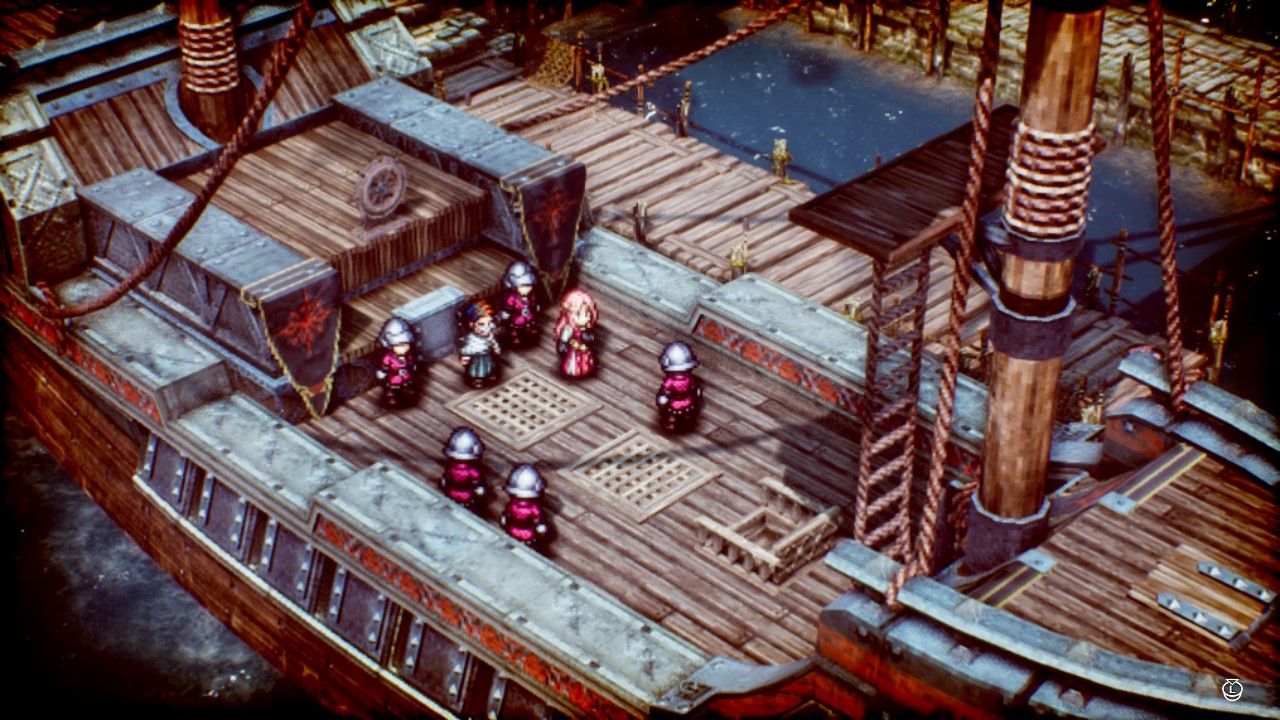
Release date: March 4, 2022
Platform(s): Nintendo Switch
Developer/Publisher: Square Enix
You step into the shoes of Serenoa, the teenage son of a once-proud Lord, in service to the House of Glenbrook, one of the three reigning territories of Norzelia. The other ruling kingdoms are Aesfrost and Hyzante, and all three have been at peace for decades after a bloody conflict ravaged the continent. Triangle Strategy might literally name its genre in its title, but it’s a story-driven game of diplomacy at heart, as the nations vie for control of Norzelia once again.
Grand aspirations
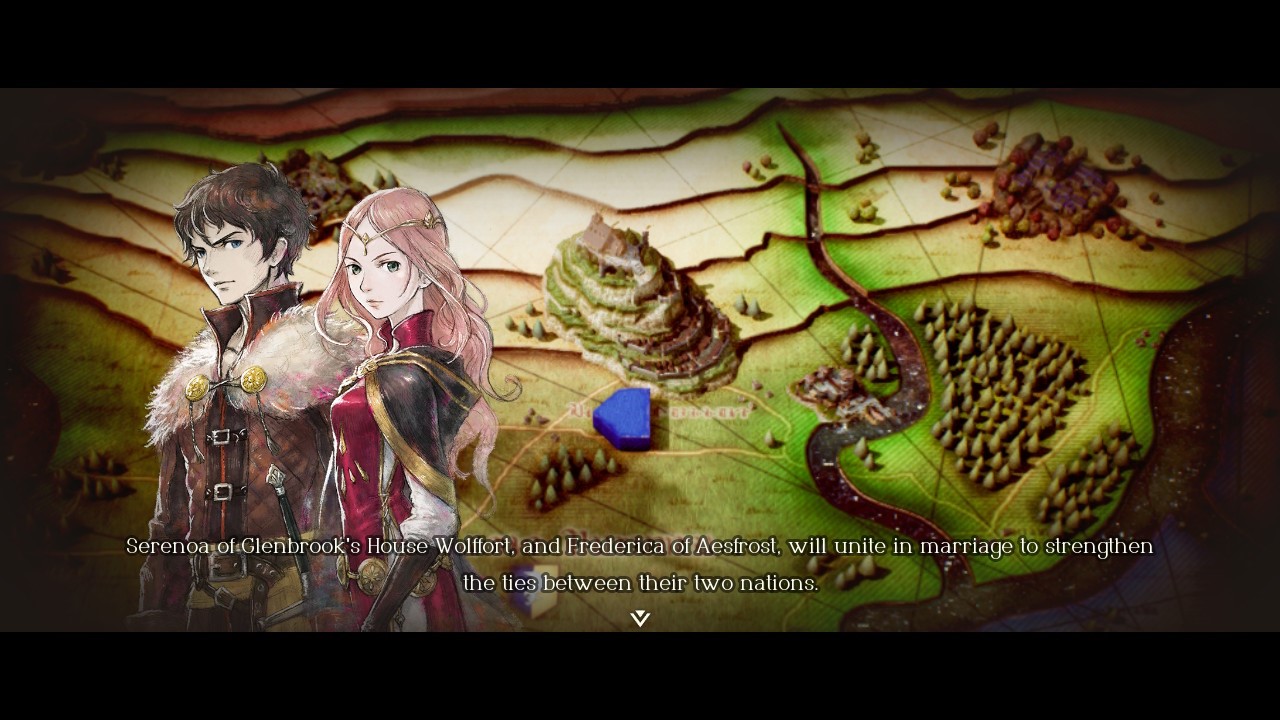
Serenoa’s role is the vehicle through which players are introduced to this sprawling world and its intricate political machinations. As Serenoa learns more about the neighboring nations, so do we, but the little Lordling’s role doesn’t start out small in the way of Frodo Baggins in the Shire - it rapidly builds from being involved with a great House to politicking on a national level, and the whole thing feels overwhelming in the opening hours. Triangle Strategy recommends you peruse documents to better understand Norzelia’s workings, such is the depth of this land.
Triangle Strategy’s scope goes from nought to 100 in the blink of an eye, and so too does its plot. What begins as another day in the life of Serenoa devolves to all-out warfare in a matter of hours, and Serenoa and his friends are picked up by the scruffs of their necks and dragged forwards without time to stop for anything. JRPG parties are usually a colorful bunch, and Triangle Strategy is no exception, as everyone from age-old advisors to plucky young rebels join in the fight to defend Glenbrook in Serenoa’s retinue.
The rip-roaring pacing means Triangle Strategy never stops to let any one of these characters properly develop. Character interactions that aren’t discussing the all-consuming war are hard to come by in the opening dozen hours, and it’s not until at least 15 hours in that optional side-scenes containing more heartfelt character-building moments present themselves. Triangle Strategy’s roster is made up of some characters that are easy to root for in the opening hours, like the usurped Prince Roland of Glenbrook, but there’s barely a moment where they just get to be themselves outside of fighting for their damn lives.
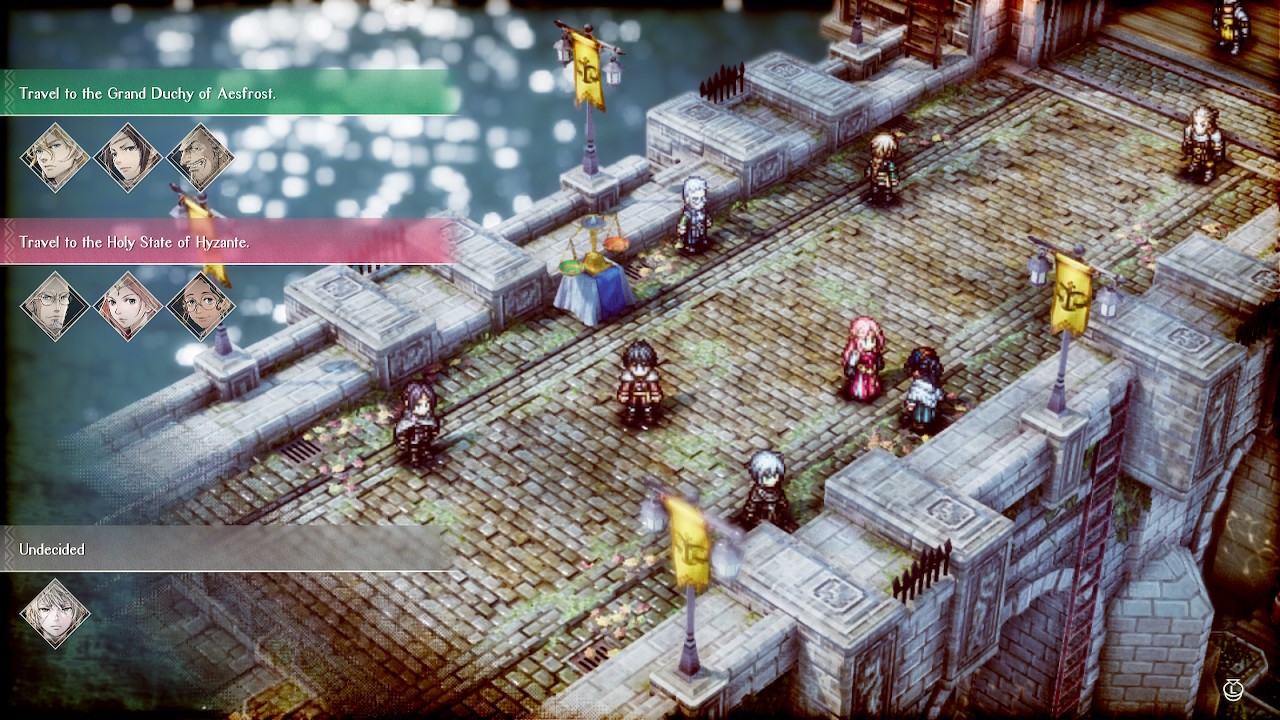
Still, Triangle Strategy does present some painstaking decisions. Periodically, Square Enix’s game rolls out the Scales of Conviction when there’s a big decision to be made, so the whole party can chip in and vote for a direction to take. Decisions might have you questioning whether to be an accomplice in illegal trade, or turn the perpetrators over to the ruling faction, for example, or select which nation to turn to for military aid when the going gets tough.
It’s actually a clever twist on the usual JRPG decisions. You’d expect to be simply presented with a few options on screen and make your decision there during critical story moments, but Triangle Strategy makes it so all your allies have a voice, and they’re going to be voting one way or another depending on their own convictions. If you want a decision to go a certain way, you’re going to have to talk to everyone who wants to vote for the opposite, and win them over to vote on your side. You’ll need to take stock of the situation, become invested in the land of Norzelia through Triangle Strategy, and pick the appropriate conversation options to win people over to vote with you.
Weekly digests, tales from the communities you love, and more
Brutal battles
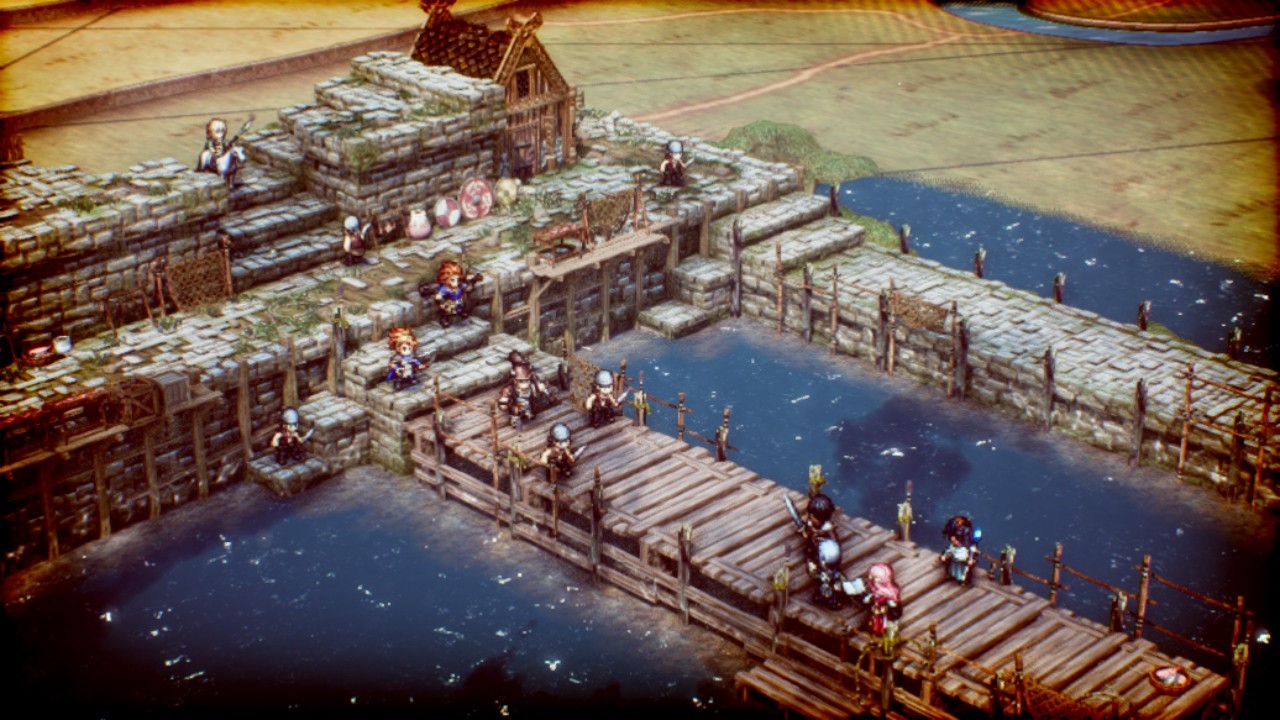
Only a certain few party members can vote in these proceedings, but Triangle Strategy’s combat roster is much more expansive. When diplomacy gives way to combat, Square Enix’s game plays out as a turn-based strategy game, with each character bringing their own unique abilities and traits to bear against enemy foot soldiers and characters on the battlefield. You’ll control swordsmen like Serenoa, stalwart shield bearers like Erador, fiery magicians like Frederica, rapid cavalry units like Roland, and many more, all of whom can shape each battle in infinite possibilities.
Triangle Strategy’s combat is pretty simple: move your unit, whack an enemy unit. Variables make things a whole lot more exciting, like puddles in damp weather becoming electrified with lightning-based magic to deal huge damage, or initiating a chain attack by positioning two characters either side of an enemy unit and striking out as one. ‘Normal’ difficulty walks an excellent line between being challenging and frustrating, as each enemy presents an obstacle to be conquered that won’t just bite the dust in one hit, and ally health is limited to prevent one character eviscerating legions of enemy troops on their own.
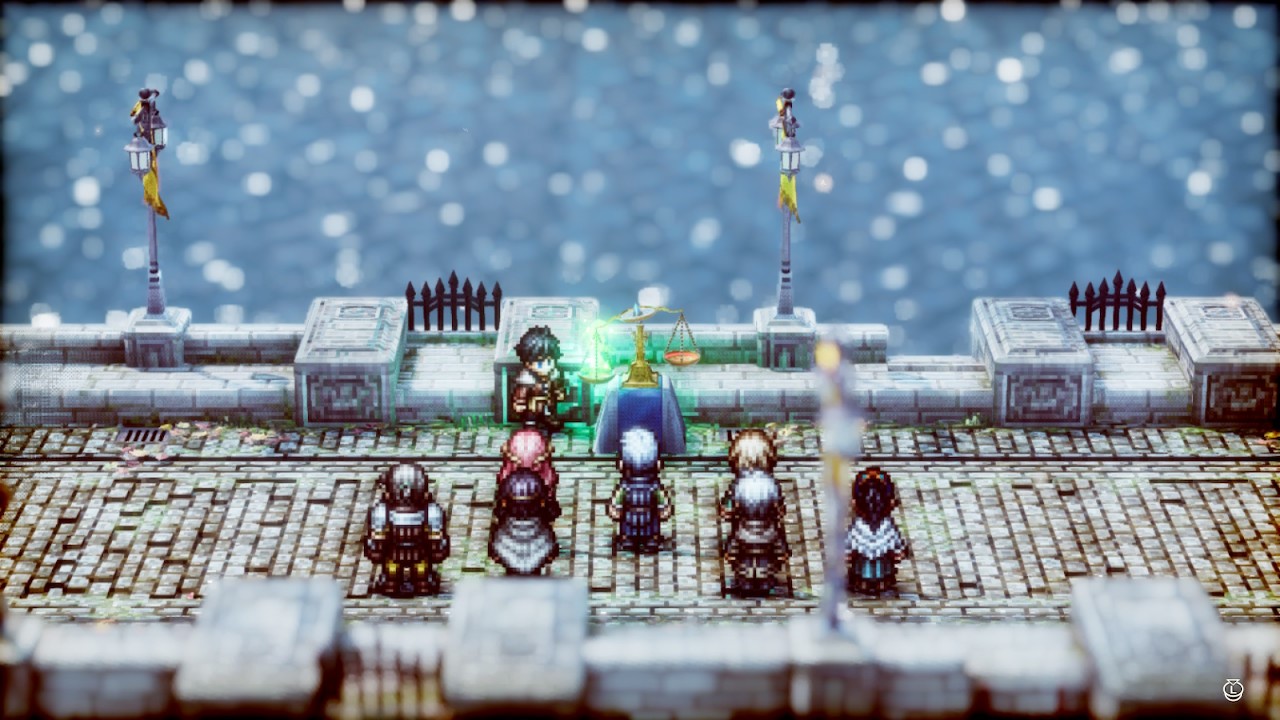
Strategy battles themselves are actually somewhat limited in Triangle Strategy’s extensive runtime. This isn’t like XCOM, which puts strategic warfare first with the story developing in the background, but rather a tall tale of Serenoa and company trying to defend their home from encroaching forces, peppered with turn-based battles at specific points. The infrequent nature of actual battles in Triangle Strategy will no doubt frustrate some, especially considering they’re inarguably the best part of Square Enix’s game.
So while Triangle Strategy soars in its actual strategic battles, it stumbles a little elsewhere. Leading characters are easy to root for in the opening hours, but it’s a shame Square Enix takes so damn long to develop actual personalities outside of politicking for the majority of them. Duking it out on the battlefield is a joy, and the voting process for major story-changing decisions is an inspired spin on simply selecting a given story route, but it’s a shame there isn’t a solid roster of empathetic characters backing up this whole ordeal.
Reviewed on Nintendo Switch with a copy provided by the publisher.
Hirun Cryer is a freelance reporter and writer with Gamesradar+ based out of U.K. After earning a degree in American History specializing in journalism, cinema, literature, and history, he stepped into the games writing world, with a focus on shooters, indie games, and RPGs, and has since been the recipient of the MCV 30 Under 30 award for 2021. In his spare time he freelances with other outlets around the industry, practices Japanese, and enjoys contemporary manga and anime.
